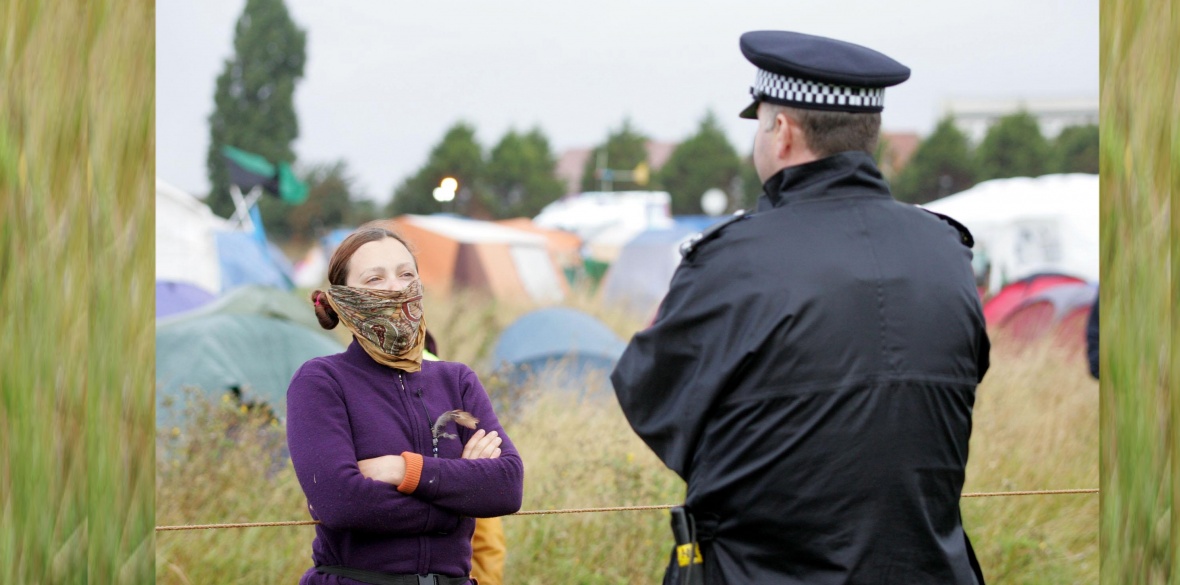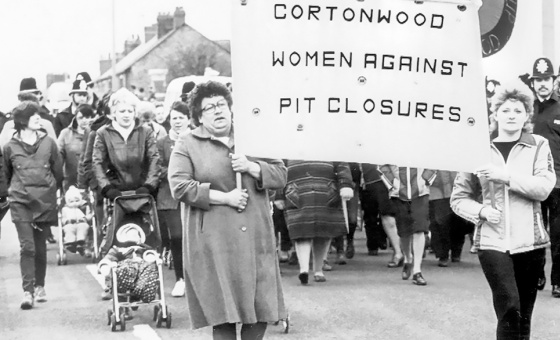This is the last article you can read this month
You can read more article this month
You can read more articles this month
Sorry your limit is up for this month
Reset on:
Please help support the Morning Star by subscribing here
TRADE unions are gradually moving towards accepting that steps need to be taken to address the issues of climate change and debating what a “just transition” from a high-carbon to a low-carbon economy will look like.
And left politicians are now considering whether a green new deal is a realistic, and vote-winning, project.
However, young people across the world have shown far greater urgency, organising a serious of actions including school strikes demanding more radical steps are taken to stop global warming and the climate chaos that will result.
Trade unions think about jobs in the fossil fuel industries and whether their pension funds invested in fossil fuels will provide workers with decent pensions.
The young people taking action, inspired by Greta Thunberg from Sweden, don’t worry about the short-term impact on the jobs of their elders or even the long-term impact on pensions.
Their worries are both longer-term in relation to the world they and their children will inherit and shorter-term in relation to the actions that need to be taken within the next few years to secure any chance of a decent future.
Like many others I have been inspired by the school students’ actions. I have been impressed by the young people involved in the Extinction Rebellion (XR) actions to demand meaningful actions to deal with the climate emergency.
However I wonder whether this youth movement to stop climate change and the trade union movement’s struggle for a just transition can link arms to build a stronger movement — or will they plough separate furrows with the risk of undermining each others’ efforts?
When the STUC held an event at its recent congress where four school students met a number of trade unionists there was much encouragement of their strike actions, but when one of the young people asked us: “Why don’t you go on strike?” there was an entirely unsatisfactory answer.
It is a simple question. There is agreement that there is a climate emergency.
Scientists have told us we have 12 years to put in place the policies and actions needed to prevent catastrophic climate changes.
However all the evidence is that governments and business, and individuals, are not taking the steps necessary to meet the target of slowing the global temperature rises to prevent us reaching the 1.5°C increase on pre-industrial temperatures.
And yet there appears to be few signs of emergency action on the part of the labour movement to address this emergency.
Developing the industrial and investment strategies to create a just transition which will provide the new industries and jobs to replace those in the fossil fuel industries is necessary work.
Persuading our pension funds to start divesting from fossil fuels is a key campaign. Demanding governments introduce better, and free, public transport services is the right kind of demand.
Developing the green new deal called for by Alexandria Ocasio-Cortez is critical.
However where is the sense of urgency demanded by the school students? Why don’t we go on strike?
Greta Thunberg has called for a further strike on September 20 and appealed for others to join the school students in taking action.
This is a challenge to the trade union movement. We need to consider exactly how we support the school students in demanding urgent action, how we pressure politicians to enact the legislation necessary and to invest the money needed for reducing our carbon use to zero within the targets, and how we get trade union members, and workers generally, to understand the need for urgency and action in support of our kids.
We could start by inviting the school students and the young people organised around the climate change movement to trade union branches and conferences.
We can embrace their urgency to inspire our members and pressure our employers and politicians to take action.
September 23 should be a trade union day of action on climate change in solidarity with the school students and for their future.
There may not be a clear trade dispute but, to address climate change and build an alliance between trade unions and young people, now might be the time to “strike!”
Stephen Smellie is Unison Scotland depute convener.










